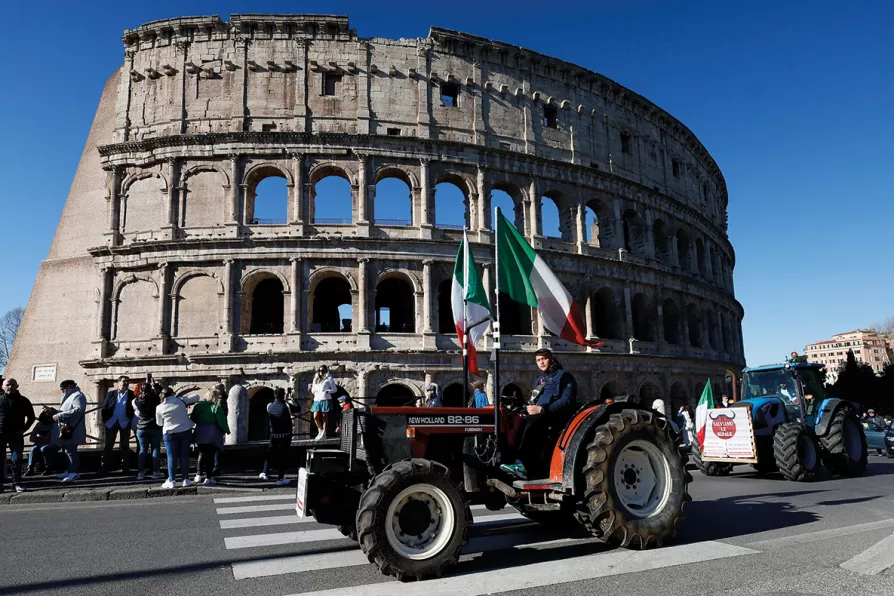This weekend, the NEU holds a special conference to debate changing its approach to organising teaching assistants, which a 2017 TUC agreement forbids. General secretary DANIEL KEBEDE outlines the choices before delegates

 Tractors pass in front of the Coliseum in a farmers’ protest in Rome, Italy, February 15, 2024
Tractors pass in front of the Coliseum in a farmers’ protest in Rome, Italy, February 15, 2024
“Tractors to the left of us, Tractors to the right.
Into the valley of Death Rode the six hundred.”
This isn’t how Tennyson’s Charge of the Light Brigade poem opens up, but residents of across Europe’s capital cities could be forgiven for thinking it should have done.
In Brussels, people had to run the gauntlet of tractors lining both sides of streets around the European Parliament; all part of farmer protests against cuts in fuel subsidies, land set-aside obligations and low-cost food imports.
The protests kicked off everywhere. Germany, France, Romania, Portugal, Greece, Poland, Britain and the Netherlands, all witnessed demonstrations about farming in crisis.

The collapse of the Atlantic Meridional Overturning Circulation poses an existential threat — but do today’s politicians have the capacity to deliver the more resilient and sustainable economics of tomorrow, wonders ALAN SIMPSON

The West’s dangerous pesticide dumping in Africa is threatening biodiversity, population health and food sovereignty, argues ROGER McKENZIE

ALAN SIMPSON warns of a dystopian crossroads where Trump’s wrecking ball meets AI-driven alienation, and argues only a Green New Deal can repair our fractured society before techno-feudalism consumes us all












